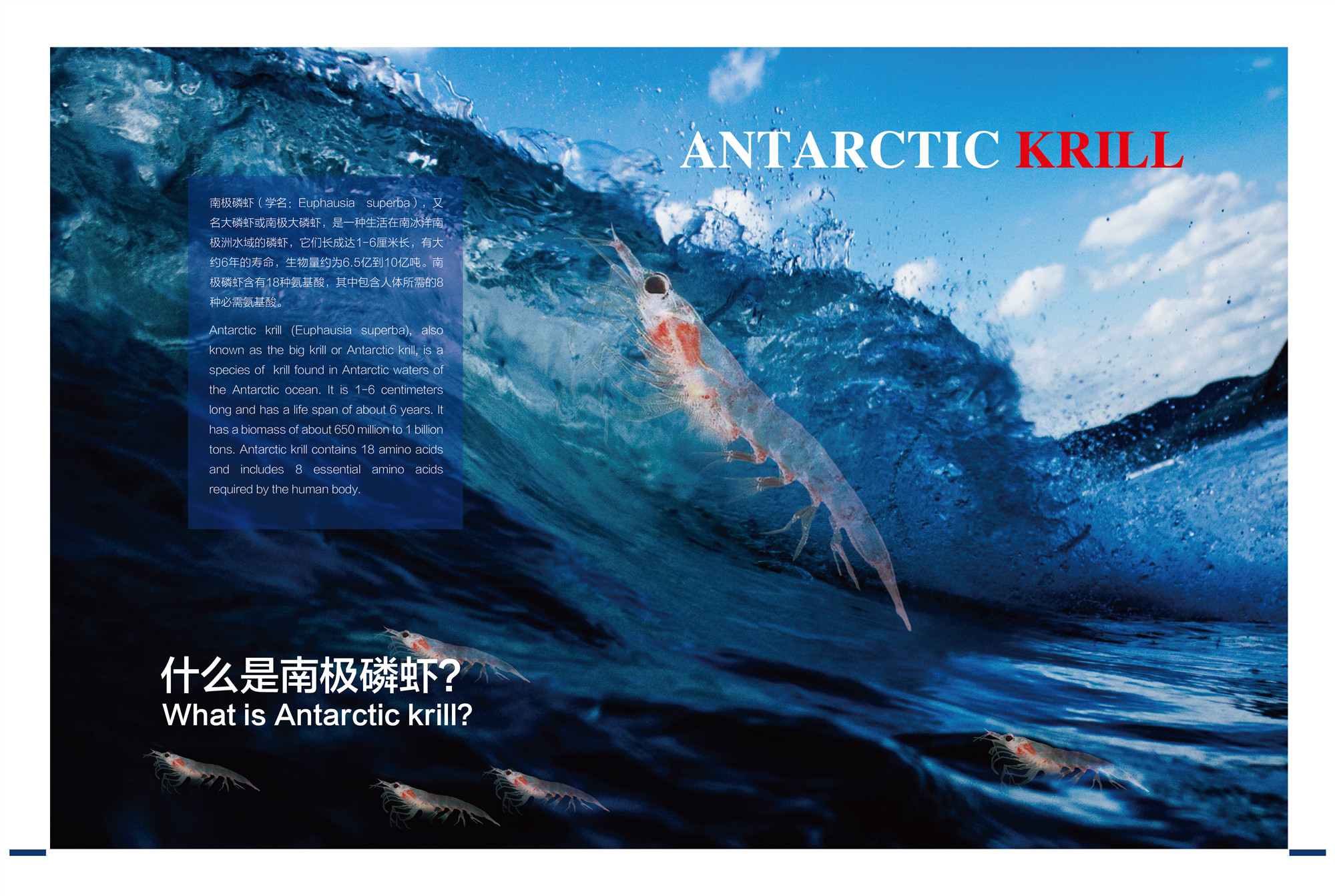
Antarctica is a world of
sub-zero frozen soil and cold ocean, polar day and night, cold wind and aurora,
where Antarctic krill live.
With an area of 38
million square kilometers, the Antarctic sea area is the last pure land on
earth to be found free from modern industrial pollution. The estimated reserves of Antarctic krill are
600-1 billion tons.
Krill is called
"the largest animal protein bank in the world". It is small and has a
luminous body. They are the key species
of Antarctic ecosystem. Antarctic krill is the fourth largest resource in the
region after food, oil and coal.
The chemical composition
of Antarctic krill is 75-80% moisture, 13-18% crude protein, 1.3-2.1% crude
fat, 2% chitin and 2-3% ash.
The fatty acid of Antarctic krill belongs to
the type of medium fat, which is higher than that of prawn. The main reason is
that the content of unsaturated fatty acid is quite high, accounting for
70.36%, and the content of saturated fatty acid is lower, the former is 2.4
times higher than the latter.